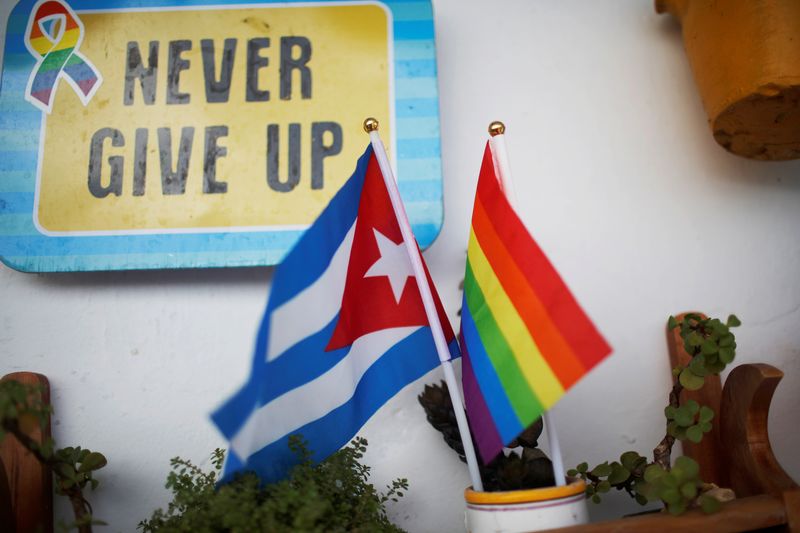Cuba trans community sees glimmer of hope in proposed legislation

HAVANA (Reuters) -Cuban transgender man Danny Ortiz has for years been stuck with his birth name “Daniela” – a name he does not want and that does not reflect his preference.
This month, that may finally change.
Cuban lawmakers are set to pass a landmark bill overhauling Cuba’s civil registry in July that would allow trans people to officially change their name at will, eliminating bureaucratic hurdles that have long made the process difficult, if not impossible, for many.
“I have plans to get married and have children,” the 25-year-old, born female, told Reuters in an interview alongside his girlfriend, Nahomis Matos, shortly after she administered him a shot of testosterone. “But first I need to change my name.”
Trans people in Cuba interviewed by Reuters said they had previously been asked to provide, as evidence of the need for a name change, a sworn statement proving society already recognized the individual by their chosen new name, to have no criminal record, and even to present certificates from workshops or events in which the applicant participated under their preferred name.
The bill, likely to be passed before month’s end, would mark a major step towards legal recognition of the LGBTQ community on the Caribbean island.
It follows the 2022 approval of Cuba’s “Family Code,” a law that greenlit same-sex marriage and adoption by gay couples, legislation widely hailed as a necessary step to combat long-held “machista” social mores.
Fátima Abdulá Ruiz, legal advisor to Cenesex, a state-run organization that advocates for the LGBTQ community, said the bill, if passed, would task her group with issuing an multidisciplinary opinion certifying the person’s desire to change his or her sex in the civil registry.
“(The bill) implements, for the first time, an expedited process,” she said, calling the legislation “a step forward in the rights of trans people.”
Previously, officials required a court order or proof of having undergone genital surgery ahead of changing a person’s sex in the civil registry.
Cuban trans woman Mia Rochel Ramos – who was forced to give up a dream of becoming a nurse five years ago due to what she called “transphobia,” said the new legislation offers hope.
“The next generations will have it (easier),” Rochel told Reuters.
While Cuba has long been hailed as the vanguard of Latin America’s left, it had lagged behind regional neighbors on marriage equality, including Argentina, Brazil, Chile and Colombia, which moved more quickly in years past to approve gay marriage and other socially progressive reforms.
(Reporting by Anett Rios and Alien Fernandez; Additional reporting by Nelson Acosta; Editing by Dave Sherwood and Daniel Wallis)









